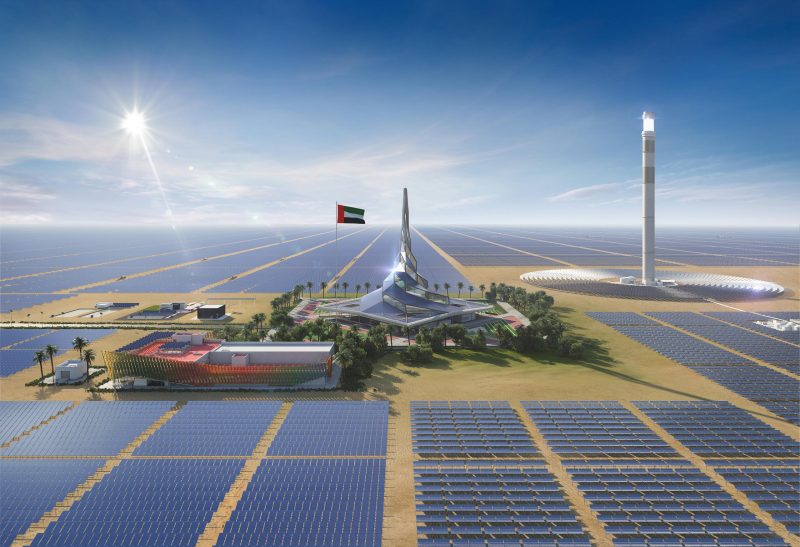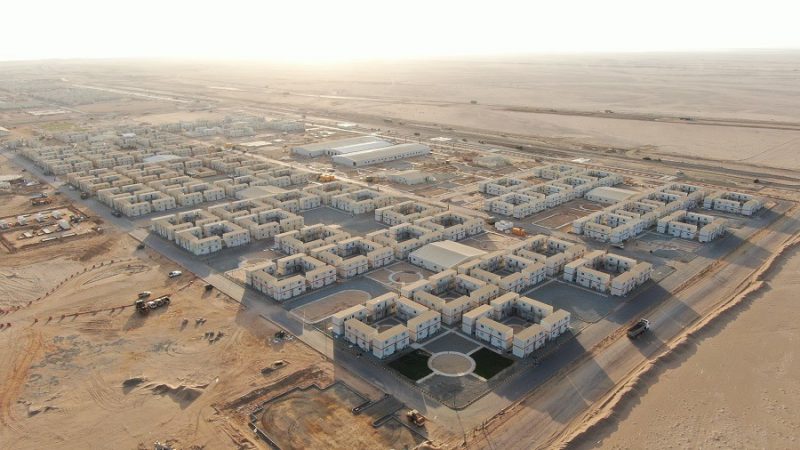UAE – Regional and Global Pioneer in Green Investments
Accounting/Finance, Feature

January 22, 2019, 7:03 am
Innovation and green investments are used by UAE-based companies to establish green projects regionally and globally.
During the Global Green Growth Institute (GGGI)’s Assembly and Council, held in Seoul in November 2018, HE Dr Thani Bin Ahmad Al Zeyoudi, Minister of Climate Change and Environment, said the UAE will contribute US$1.5 million annually from 2019 to 2021 to fund projects carried out by the institute.
“In the UAE, we are resolved to achieving a green economy as per the UAE Green Agenda 2030 adopted by the UAE Cabinet in 2015. During 2017-18, we have made a lot of progress in the implementation of the Green Agenda 2030 and key policy developments with the assistance of the GGGI Abu Dhabi office team,” declared Al Zeyoudi, reiterating the country’s commitment to green development.
The UAE is clear on the internal milestones it needs to achieve to build a green economy and a sustainable lifestyle for its residents. The strategy expands outside the borders of the country through several UAE-based companies which are investing in or developing green regional or international initiatives.
Masdar, the Abu Dhabi Future Energy Company, has invested around USD2.7 billion in projects around the world over the last ten years, with 1 GW of installed capacity and 0.7GW under development. Masdar’s renewable energy projects span Abu Dhabi, Oman, Jordan, Mauritania, Egypt, Morocco, the UK, Spain, Seychelles, and the Pacific Islands.
In February 2018, the company announced that it would contribute to building a 5MW solar power plant with battery storage in the Republic of Seychelles. The project is being financed by Abu Dhabi Fund for Development (ADFD), the national entity for development aid with a AED31 million loan, and by the Public Utilities Corporation’s (PUC) own equity.
The 5MW Ile de Romainville Solar Park will be located on the same site as the existing ADFD-financed AED103 million Port Victoria Wind Farm. Built by Masdar, this 6MW renewable energy wind farm has been generating power for the Seychelles’ capital since 2013. Both green iniatives are meant to reduce Seychelles’ current reliance on fossil fuels, accounting for around 20 per cent of the country’s imports. In response, it has set a target of 5 percent renewables by 2020 and 15 percent by 2030.
“Seychelles has placed climate change at the centre of its sustainable development strategy. Contributing to the financing of this solar park with integrated battery storage will bolster ADFD’s efforts in supporting the island country’s priorities, especially with regard to mitigating carbon emissions through the deployment of renewable energy,” said Mohammed Saif Al Suwaidi, director general of ADFD, in a statement.
Mohamed Jameel Al Ramahi, Chief Executive Officer of Masdar, said: “Masdar is honoured to have been selected to partner with ADFD and PUC in the development of Seychelles’ latest renewable energy project, and to build on our successful involvement in the Port Victoria wind project. This collaboration will be an opportunity to harness the latest efficiency enhancements in solar power technology, including the optimisation benefits of battery storage.”
Later in the year, Masdar announced plans to build wind and solar power plants in Uzbekistan. The company signed the agreement on the joint construction of wind and solar power plants at the Uzbekistan-UAE business forum in Tashkent.
In November 2018, as part of the United Arab Emirates-Caribbean Renewable Energy Fund (UAE-CREF), Masdar launched of the construction on 2.35 MW of solar photovoltaic (PV) plants in the Bahamas, Barbados and Saint Vincent and the Grenadines.
UAE-CREF is being fully financed by the Abu Dhabi Fund for Development (ADFD). The initiative is a partnership between UAE Ministry of Foreign Affairs and International Cooperation (MOFAIC), ADFD and Masdar. The total value of the partnership is USD 50 million to support renewable energy projects in the Caribbean over the next three years.
The first projects under the partnership are the three solar plants: a 900-kW carport PV array with an electric vehicle (EV) charging station at the national stadium in the Bahamas, a 350-MW solar carport, also with an EV station, and a 500-kW ground-mounted PV facility in Barbados. The third scheme is the construction of 600-kW solar plant in Saint Vincent and the Grenadines, to be connected to a 500-kW battery storage facility, covering the entire island’s power demand during the daytime. The facilities will become operational in the first quarter of 2019.
In July 2018, Enviromena Power Systems, a renewable energy provider from the UAE, announced it had started construction on solar power plants in Egypt and Jordan. In Egypt, the company is constructing 256MW of solar PV projects which will help provide power to nearly 370,000 homes while displacing 454,000 tonnes of carbon dioxide annually. The facility is part of a wider solar complex of 32 plants which will collectively provide 1,650MW of power, contributing to Egypt’s plan to achieve 20% renewable energy by 2020. In Jordan, Enviromena already completed the Quweira site, the country’s largest solar park, in a joint venture with Spanish company TSK. In 2018, the renewable energy provider started work on a 247MW project in Al Muwaqqar, Jordan. The project will bring electricity to 320,000 homes while displacing 408,000 tonnes of carbon dioxide annually.
UAE understands the importance of achieving local sustainability goals and the potential of exporting innovation to drive regional and global standards.










